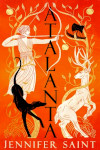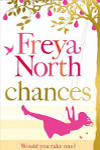Claire North – The End Of The Day
Posted 7th December 2017
Category: Reviews Genres: 2010s, Commentary, Fantasy, Philosophy, Political, Social
Comments Off on Claire North – The End Of The Day

In life, only two things are certain…
Publisher: Orbit Books (Hachette)
Pages: 401
Type: Fiction
Age: Adult
ISBN: 978-0-356-50733-0
First Published: 4th April 2017
Date Reviewed: 7th December 2017
Rating: 4.5/5
Charlie is the Harbinger of Death – the Milton Keynes office sends him the details of his next appointment, he gets on a train, bus, or aeroplane, and goes to see someone who is dying or whose world is fading away. It’s a tough job at times, very tough, but Charlie enjoys it; his role is to honour life.
The End Of The Day is a philosophical literary fantasy novel that explores many moral and ethical questions and issues we have in our world today.
This book is original; starting with the potential of a Terry Pratchett influence in its basic concept, it uses a gentle fantasy-type humour, and whilst it appears at first simply to be a solid addition to the genre, it soon reveals itself to be a blend of this and literary fiction.
The plot is scant – in fact it’s more a series of events than anything else – and the character development is not big, but both these things are intentional and with good reason; this is where the philosophical nature comes in. North’s book is primarily a study – a very good, enjoyable-in-its-own-right study – and secondly a good old work of fantasy. Death here is of a distinct type – whilst quite likely being fond of cats (its the personality, the basic construction of Death that is like Pratchett) – the defining nature of North’s Death, which doubles as one of the points the author wants to get across – is that it doesn’t just appear at the end of someone’s life, but at the end of an idea, at the end of a world, a culture in decline.
And it’s not just the usual thought of a cultural element ending (though a language dying along with its last speaker is one of the things North looks at) but also things like the end of a tradition that excludes black or poor people, and the start of a society that denies LGBT rights. Here Death comes at the last instance of the old way to usher in the new.
The above is part of the philosophy North includes – most of the blunter referencing, that becomes blunt the more you read, happens in extracts that aren’t directly related to Charlie. It’s apt here to bring in the writing as it’s part and parcel of this; North uses various different writing methods and markings to deliver her commentary; poetical verses sit alongside sentences full of ellipses, dialects, accents; different languages – even different scripts – are scattered throughout; bunches of sayings, stereotypical sentence beginnings, opinions, and presentations are added as paragraphs and verses, the different sentences of one whole effective conversation jumbled up with the others – a handful of different thoughts displayed at once. To summarise (the following statements are here as examples of the sorts of topics covered) “I’m not racist but…”; “won’t anyone think of the children?”, “well I think”; “but they come to this country…”; “I might be a woman myself but I’m not going to go employing young women – they’ll all go off getting pregnant”.
I only get seventy-two pounds a week to cover everything… will that stop, now I’ve got money for my flat?
And the copper wasn’t sure but wondered if maybe it would, if perhaps now that Jeremiah had savings and no roof over his head, the government didn’t regard his welfare as its concern.
There is a great number of ideas, thoughts, political and social points included so often-times these sentences are generalised or simply provide more insight into what North is doing, but on occasion – more than a few occasions – the author looks at something in more detail. The more generalised do include a certain amount of detail for the sheer amount of insight they provide in just a couple of sentences, it’s just that the chapters (very short in most cases) have more space to give a concept.
Speaking of chapters and thus the writing as a whole, North’s use of language is exceptional. Then there’s the way she goes about her philosophy openly, the obscurity near the beginning of the book there only due to the fact you’ve not yet realised what it’s all about.
And then the world turned, and someone tweeted something new, and everyone retweeted it and moved on, and nothing fucking changes.
The subjects are heavy, and North sends Charlie all round the world, showing that it’s not one place but the entirety. One of the more poetical, experimental aspects included – the only experimental (this is an easy enough read) – is the different number of repetitions of the words ‘human’ and ‘rat’ that are used in all parts of the book – both statements and sentences, and Charlie’s narrative. What is it to be human? What separates us from animals? When are we good or bad? There are a variety of ways this can be interpreted.
The one drawback is the book’s length. There is a lot to cover and it’s all excellent but there comes a point where Charlie’s journeys and the philosophy becomes less powerful simply due to the amount to think about. It’s a difficult one because it’s all important and relevant to North’s study but still just a bit too much, and there’s the possibility with it that you’ll become over-exposed to the point of it becoming less powerful.
But then is that the point? Is it, to reference a completely different book that nevertheless shares a few ideas, rather like The Hunger Games, wherein Suzanne Collins seems to be using over-exposure on purpose, making the reader reach a point where the absolute horrific violence ceases to produce a response because they’ve seen so much of it, and then using that lack of response to make her point? Is North showing you what she wants to both to the point where you ‘get’ what she’s saying but also to the point where you become so used to it that it’s easy to just keep reading without being constantly shocked, rather like we’re so used to seeing pictures of starving children in Africa and the many different charities that promote other causes that it becomes a sort of background worry, spoken about, but then left? It’s open to interpretation.
If you’re looking for either a literary book or a fantasy book this isn’t the one to go for because it’s both and neither at the same time and is the opposite of escapism. But you absolutely do want to make the time to read it and see for yourself. As much as any review can tell you what it’s about, there’s a great level of individual interpretation here, a resonance for each reader and, in a very unique way, there is something for everyone.
I received this book for review. The book has been shortlisted for the Young Writer of the Year Award.
Related Books
None yet
No Comments
Comments closed






















